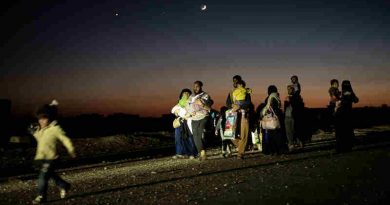How Skinner Views Wikileaks and North Korea
The U.S. foreign policy currently faces two big challenges: the latest Wikileaks documents and the Korean crisis.
Carnegie Mellon University’s (CMU) Kiron K. Skinner (pictured above) is said to be one of the country’s leading experts in international relations and U.S. foreign policy.
Skinner is an associate professor of social and decision sciences and director of CMU’s Center for International Relations and Politics.
From 2001-2007, she was a member of the U.S. Defense Department’s Defense Policy board as an adviser on the wars in Iraq and Afghanistan, informs CMU.
[ Also Read: Is Divided Government Good for America? ]Skinner sees a strong comparison between the Wikileaks and the 1979 Spy Den documents – when Iranian radicals published classified cables from the U.S. Embassy in Tehran to Washington, D.C. It was said in a statement issued by CMU Tuesday, Nov. 30.
Wikileaks, a not-for-profit media organisation that releases classified information for public consumption, is drawing unprecedented attention from people all around the world.
It began on Sunday Nov. 28 publishing 251,287 leaked United States embassy cables (communications).
It is stated to be the largest set of confidential documents ever to be released into the public domain. The documents will give people around the world an insight into US Government’s foreign activities. (Read: Wikileaks Leaks Out Secret US Embassy Cables)
“This type of violation of international understandings among states undermines the capacity of U.S. leaders to conduct diplomacy, as it did during the Iran revolution,” Skinner said.
“Documents are published outside of the larger context in which they are written; cables written by lower level officials, many of whom may not be in the decision loop, get magnified. This suggests that the U.S. cannot keep secrets, inflames opposition from radical corners and confuses the public,” Skinner added.
Noting the escalating tension on the Korean peninsula, Skinner feels that the U.S.’s options are limited.
“The gateway to North Korea is through China, and China has few incentives to ‘solve’ the North Korean problem,” she said.
“A unified Korean peninsula would put a democracy on China’s borders and lead to a refugee crisis. Addressing North Korea as a problem also means facing the failure of Communism in the region. Trying to get China to see North Korea from our perspective is perhaps the biggest foreign-policy challenge outside of the Middle East.”
Photo courtesy: CMU






